I am now turning for home! This morning my satnav said Calais 2778 kilometres to drive: It’s less tonight.
The weather is much improved today, a clear sunny morning although still cool at 12 degrees. Looking across to Samothrace it appears that Mt. Saos has caught a dusting of snow in the night. On leaving Alexandroupoli, I headed on the motorway 30 km towards Turkey, before turning north just before the border on a good road that runs north 100km parallel to the Turkish border ,with the border at times almost spitting distance (i.e. the other side of a river)
I had ,on setting out on the journey, thought that I would pop over the border at this point to visit Edirne, the former capital of the Ottoman empire before they conquered Constantinople. Having done a bit of research I decided that it would be an unnecessary hassle for such a symbolic gesture. The onward border crossing from Edirne, Turkey ,into Bulgaria is apparently the busiest in Europe; they have a significant problem with illegals trying to cross into Europe here, and queues are often long. In the end I drove past Edirne on the Greek side of the border, the city visible 7km away, and I could clearly make out the large dome and minarets of the famous Selimiye mosque, completed in 1574.Finally I crossed into Bulgaria direct from Greece, at a very quiet crossing.
The Greek /Turkish border area is still a sensitive place: there was a fair amount of Greek police presence along the road. I passed one checkpoint without being stopped. There was also military traffic. I passed two army bases containing tanks and armoured vehicles. Signs by the side of the road at intervals warned against taking photos (which would have been of a river and some trees) .Maybe the issue now is not so much a military incursion from Turkey but illegal immigration. In contrast to this security, when I arrived at the Greek border post I was gestured straight through by a Greek passport man who did not even look up from his mobile phone.
Theoretically crossing from one EU country to another shouldn’t pose any problems, but apparently the Bulgarian authorities are only slowly losing a habit of suspicion left over from the communist era. A Bulgarian border guard disappeared with my passport and vehicle registration document for a few minutes, then got into the van and had a look round before I was allowed to go. Just past the border I had to stop at a little shop to buy a road tax vignette for 5 Euro valid for a week, to stick on the windscreen. The girl in the shop specifically asked if I could pay her in Euro change ,a pile of 10 and 20 cents ,as she need the change.(the actual Bulgarian currency is the Lev, but it has been pegged to the Euro at a fixed exchange rate of 1 Euro to 1.95 Lev for several years,so Euros are commonly accepted).
My destination was a small English run campsite ,'Sakar Hills Camping',in the village of Biser just 30km over the border. It is one of just 6 campsites in the country so far as I can see, and some others are also run by Brits ,the Bulgarians being very slow to harness the income from rural tourism. Sakar Hills Camping is a great spot ,on a small field at the back of a farmstead.The chickens and cockerel owned by,I think ,the neighbour, are pretty noisy, as are the local dogs,but its a good rural sound. I was a bit alarmed by a massive new railway embankment just behind the orchard,but Matt, the owner, assured me that the line on top was unfinished and completion was currently dubious due to lack of funding.It looks large enough for about 20 vans and judging by their facebook page( www.facebook.com/sakarhills/ ) some real parties go on here at busier times.But it's early in the season yet and just a couple of other vans are here :the ground is also a bit squelchy still so I was directed onto one of a few spots with hard standing. What was a nice surprise was that despite the apparent poverty of the village the campsite broadband speed was the best I've encountered anywhere on my travels so far, and later that evening,for the first time I was able to watch a couple of shows on BBC iplayer.
I wandered down into the local village which is a bit of an eye opener. Beyond the main road the little roads are dust and potholes. Bulgarian houses I have seen so far today, and this also applies to a larger town I passed through earlier ,look distinctly home made, uneven courses of bricks, many with no pointing or rendering, though some are covered by grey cement. There is some horse drawn traffic around, little carts pulled by ponies. In the village of Biser,the older buildings( now mostly the sheds or barns,although some houses too)are built from mud bricks on a lower course of stone a couple of feet high,and the rest of the houses are red brick,with the same home-made look. Random chickens run around in the streets, and also lots of dogs..
The weather is much improved today, a clear sunny morning although still cool at 12 degrees. Looking across to Samothrace it appears that Mt. Saos has caught a dusting of snow in the night. On leaving Alexandroupoli, I headed on the motorway 30 km towards Turkey, before turning north just before the border on a good road that runs north 100km parallel to the Turkish border ,with the border at times almost spitting distance (i.e. the other side of a river)
I had ,on setting out on the journey, thought that I would pop over the border at this point to visit Edirne, the former capital of the Ottoman empire before they conquered Constantinople. Having done a bit of research I decided that it would be an unnecessary hassle for such a symbolic gesture. The onward border crossing from Edirne, Turkey ,into Bulgaria is apparently the busiest in Europe; they have a significant problem with illegals trying to cross into Europe here, and queues are often long. In the end I drove past Edirne on the Greek side of the border, the city visible 7km away, and I could clearly make out the large dome and minarets of the famous Selimiye mosque, completed in 1574.Finally I crossed into Bulgaria direct from Greece, at a very quiet crossing.
The Greek /Turkish border area is still a sensitive place: there was a fair amount of Greek police presence along the road. I passed one checkpoint without being stopped. There was also military traffic. I passed two army bases containing tanks and armoured vehicles. Signs by the side of the road at intervals warned against taking photos (which would have been of a river and some trees) .Maybe the issue now is not so much a military incursion from Turkey but illegal immigration. In contrast to this security, when I arrived at the Greek border post I was gestured straight through by a Greek passport man who did not even look up from his mobile phone.
Theoretically crossing from one EU country to another shouldn’t pose any problems, but apparently the Bulgarian authorities are only slowly losing a habit of suspicion left over from the communist era. A Bulgarian border guard disappeared with my passport and vehicle registration document for a few minutes, then got into the van and had a look round before I was allowed to go. Just past the border I had to stop at a little shop to buy a road tax vignette for 5 Euro valid for a week, to stick on the windscreen. The girl in the shop specifically asked if I could pay her in Euro change ,a pile of 10 and 20 cents ,as she need the change.(the actual Bulgarian currency is the Lev, but it has been pegged to the Euro at a fixed exchange rate of 1 Euro to 1.95 Lev for several years,so Euros are commonly accepted).
My destination was a small English run campsite ,'Sakar Hills Camping',in the village of Biser just 30km over the border. It is one of just 6 campsites in the country so far as I can see, and some others are also run by Brits ,the Bulgarians being very slow to harness the income from rural tourism. Sakar Hills Camping is a great spot ,on a small field at the back of a farmstead.The chickens and cockerel owned by,I think ,the neighbour, are pretty noisy, as are the local dogs,but its a good rural sound. I was a bit alarmed by a massive new railway embankment just behind the orchard,but Matt, the owner, assured me that the line on top was unfinished and completion was currently dubious due to lack of funding.It looks large enough for about 20 vans and judging by their facebook page( www.facebook.com/sakarhills/ ) some real parties go on here at busier times.But it's early in the season yet and just a couple of other vans are here :the ground is also a bit squelchy still so I was directed onto one of a few spots with hard standing. What was a nice surprise was that despite the apparent poverty of the village the campsite broadband speed was the best I've encountered anywhere on my travels so far, and later that evening,for the first time I was able to watch a couple of shows on BBC iplayer.
I wandered down into the local village which is a bit of an eye opener. Beyond the main road the little roads are dust and potholes. Bulgarian houses I have seen so far today, and this also applies to a larger town I passed through earlier ,look distinctly home made, uneven courses of bricks, many with no pointing or rendering, though some are covered by grey cement. There is some horse drawn traffic around, little carts pulled by ponies. In the village of Biser,the older buildings( now mostly the sheds or barns,although some houses too)are built from mud bricks on a lower course of stone a couple of feet high,and the rest of the houses are red brick,with the same home-made look. Random chickens run around in the streets, and also lots of dogs..
The Bulgarians have a system that when someone dies a death notice known as a necrolog is posted up on their gate, or door, and on telegraph poles and trees . These are laminated, or enclosed in polythene. I later learnt that they are also posted at very specific intervals: immediately upon the death; then renewed 40 days later; and 3 months, 6 months, 1 year and 18 months, respectively, after death. They are then posted every year on the anniversary of the death with no limit on how far into the future this continues. As long as there is someone alive who remembers the deceased and cares enough, the tradition continues.
As a result nearly every gate and telegraph pole in the village has a collection of these notices, some showing black and white photos from decades ago in various stages of decay, which I find pretty morbid and the huge number of them makes the place look as if has been struck by plague.
.
I was interested by the war memorial in the village:3 date periods were quoted ,1912-13(The Balkan wars), Initially allied with Greece and others against the Ottomans during which the Ottomans lost all their European territory, then their former allies including Greece quarrelled with them, during which Bulgaria was defeated ,1916-18 (WWI)when they were on the losing side again, and 1945( when they quickly switched from a non-participatory alliance with the Axis to join the Soviets' defeat of Germany in the closing stages of the war, once the USSR had invaded them). By such misfortunes ,Bulgarian territory has been whittled away considerably from its former glories.(the castle in Ohrid ,Macedonia, was built by the Bulgarian Czar Samuil )
At the campsite Matt is selling bottles of local wine. Although it's very reasonably priced he must still be making a good profit on it as he says the only way you can buy local wine is in 10 litre plastic containers: he bottles it up himself and labels it . It’s a Merlot , and very good. I'd be happy paying £7 for it in the UK so £2-80 is a bargain:it might not travel well,but on this sample of one I think the UK might need to open its eyes to Bulgarian wines.
As a result nearly every gate and telegraph pole in the village has a collection of these notices, some showing black and white photos from decades ago in various stages of decay, which I find pretty morbid and the huge number of them makes the place look as if has been struck by plague.
.
I was interested by the war memorial in the village:3 date periods were quoted ,1912-13(The Balkan wars), Initially allied with Greece and others against the Ottomans during which the Ottomans lost all their European territory, then their former allies including Greece quarrelled with them, during which Bulgaria was defeated ,1916-18 (WWI)when they were on the losing side again, and 1945( when they quickly switched from a non-participatory alliance with the Axis to join the Soviets' defeat of Germany in the closing stages of the war, once the USSR had invaded them). By such misfortunes ,Bulgarian territory has been whittled away considerably from its former glories.(the castle in Ohrid ,Macedonia, was built by the Bulgarian Czar Samuil )
At the campsite Matt is selling bottles of local wine. Although it's very reasonably priced he must still be making a good profit on it as he says the only way you can buy local wine is in 10 litre plastic containers: he bottles it up himself and labels it . It’s a Merlot , and very good. I'd be happy paying £7 for it in the UK so £2-80 is a bargain:it might not travel well,but on this sample of one I think the UK might need to open its eyes to Bulgarian wines.
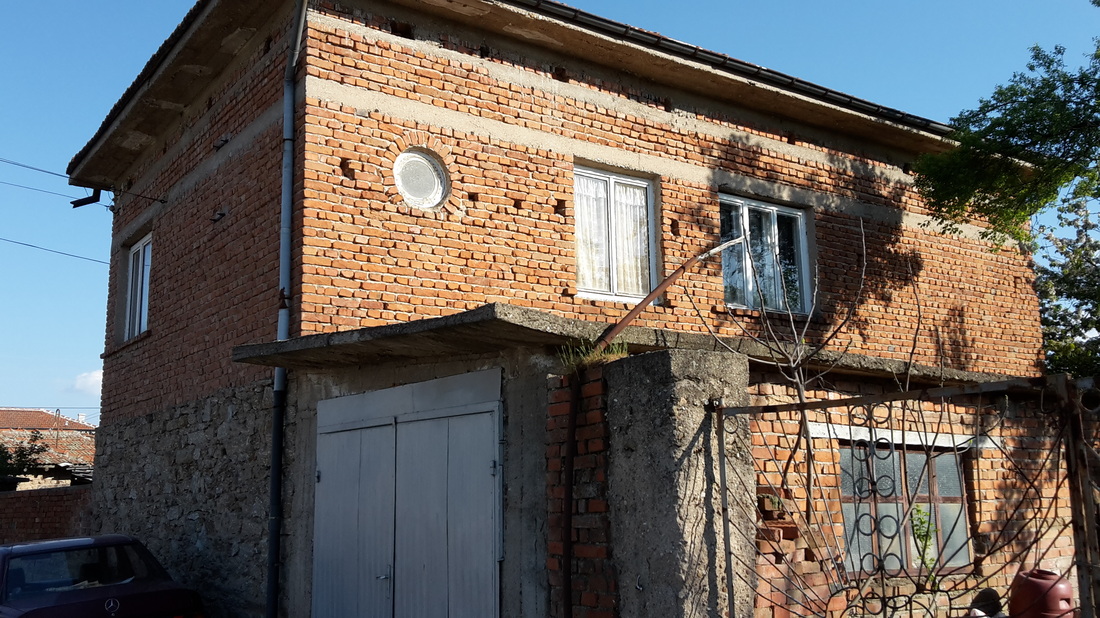
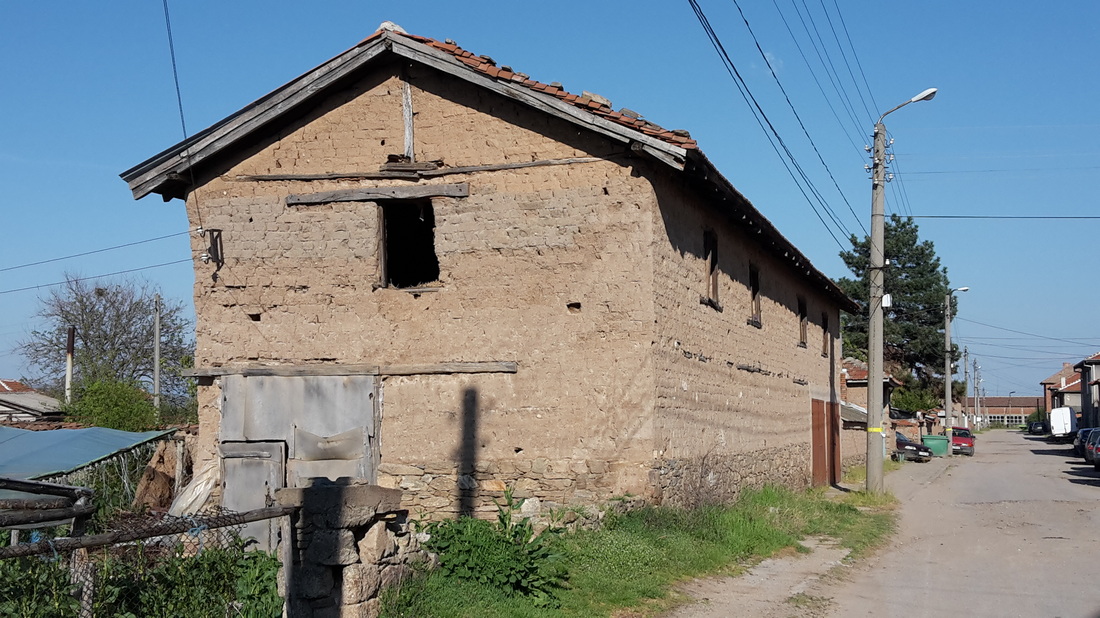


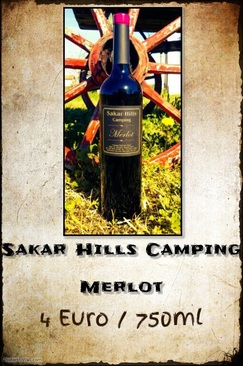

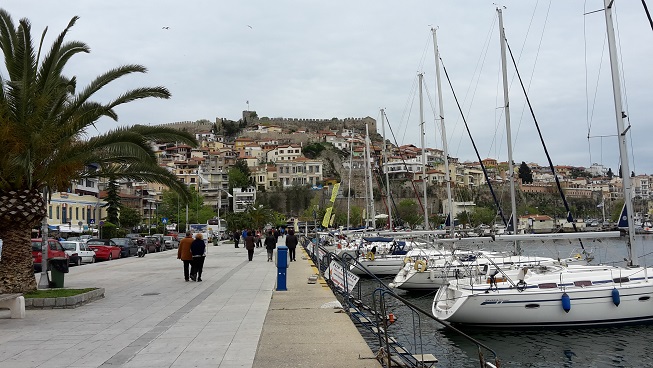
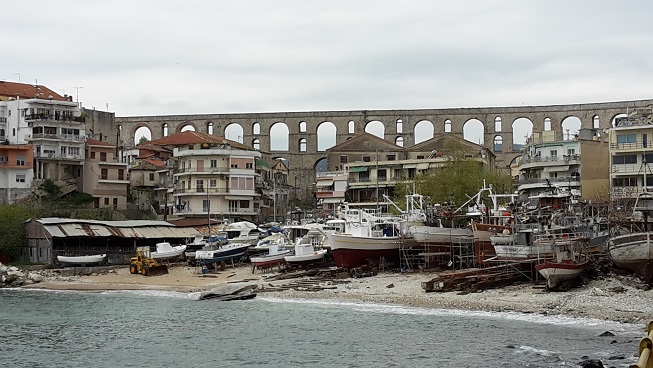
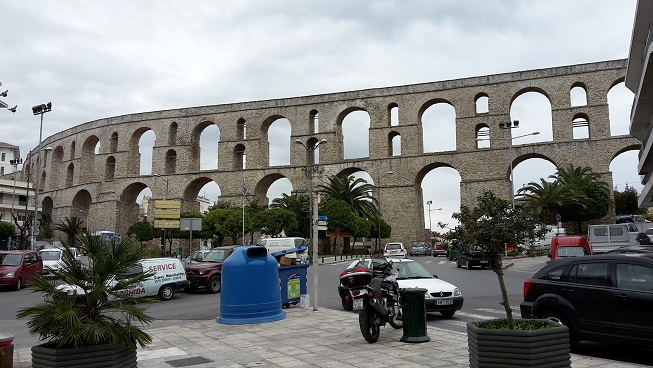

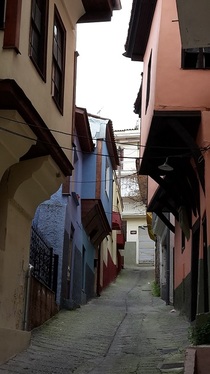
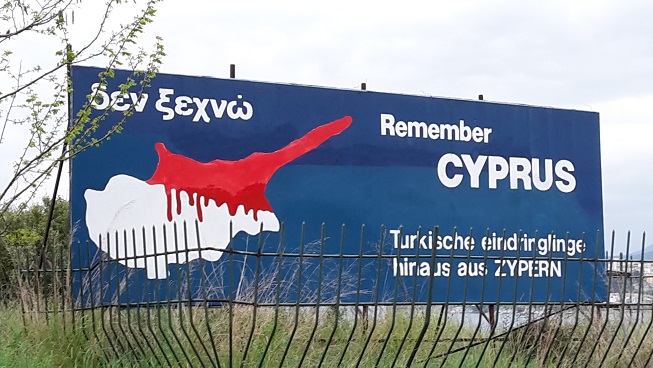
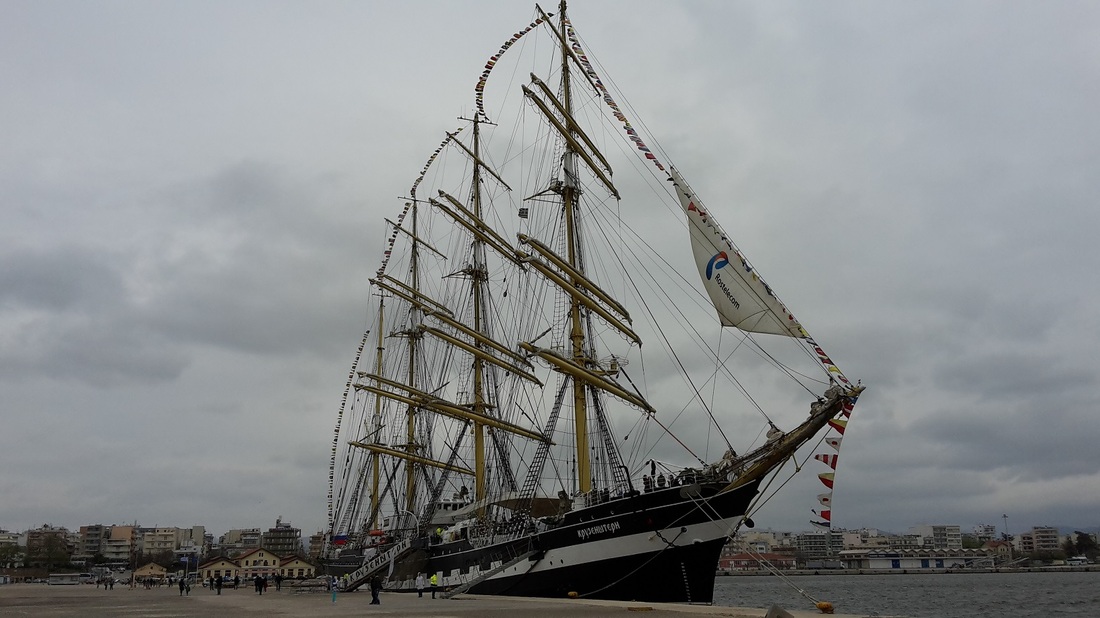
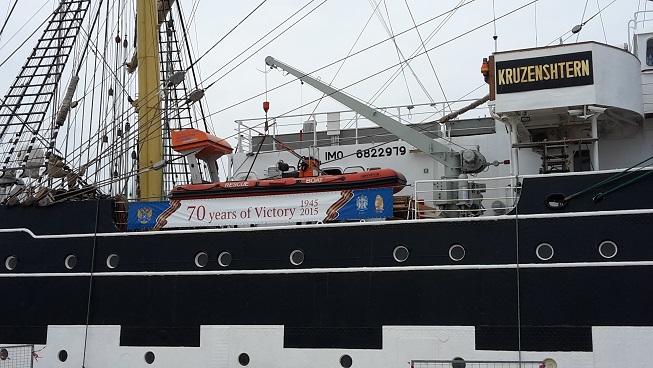
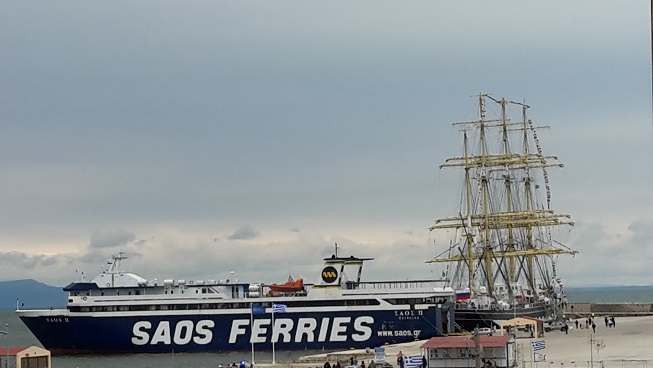
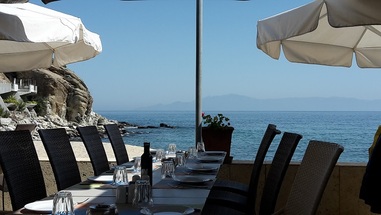
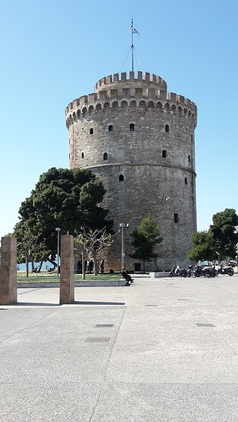
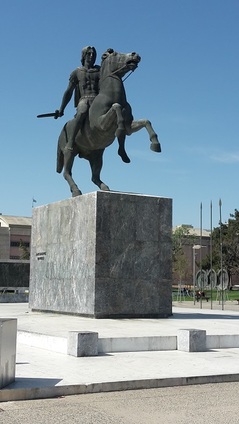
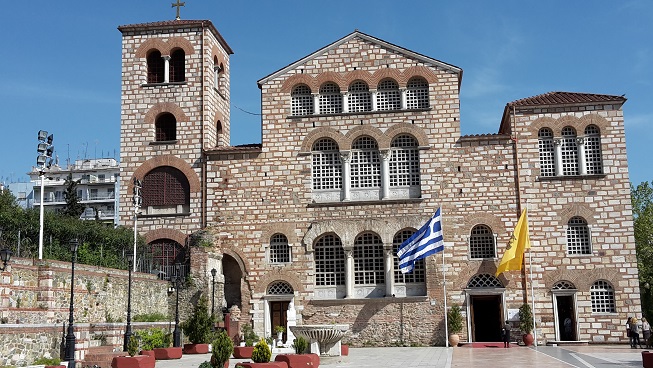
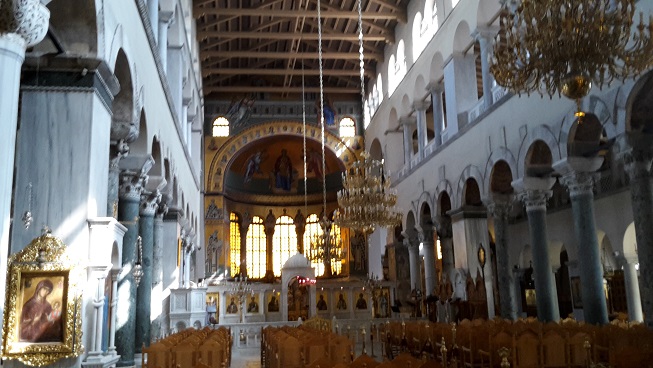
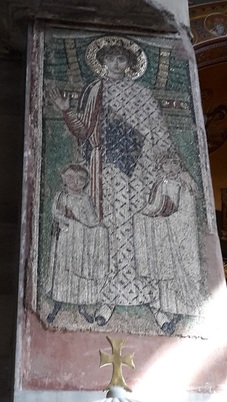
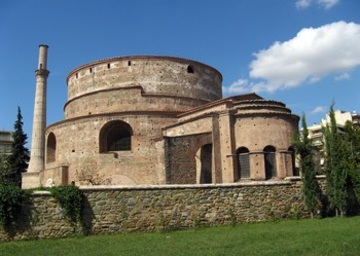
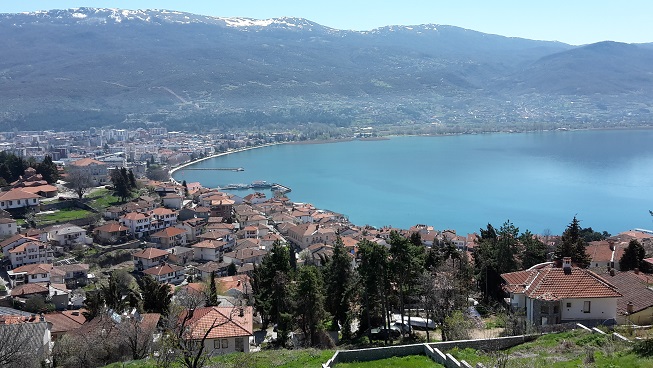
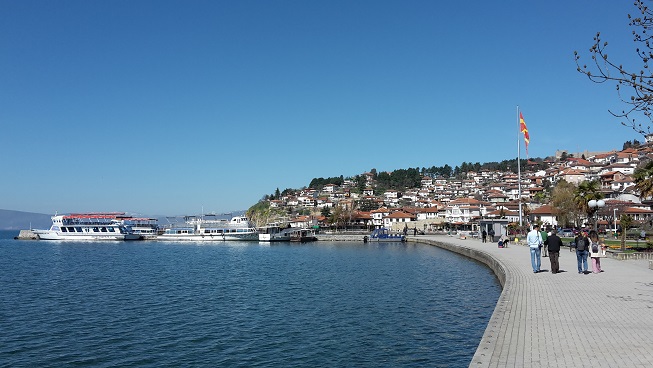
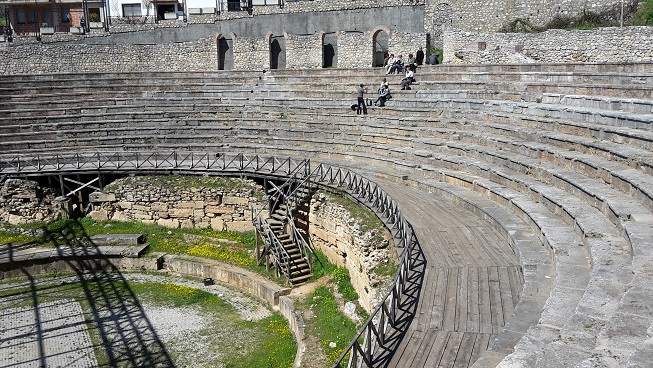
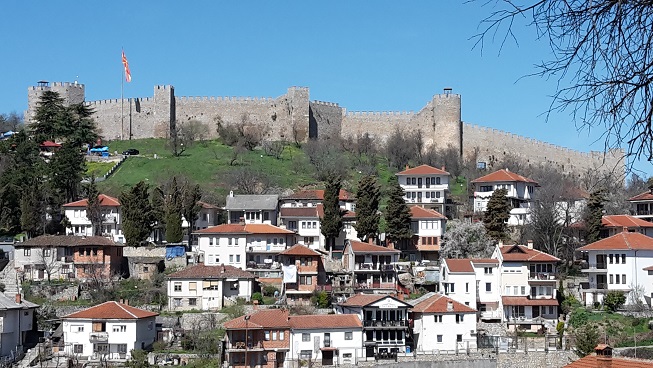
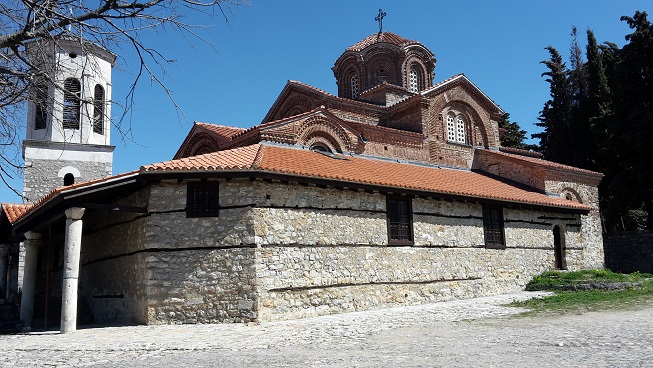
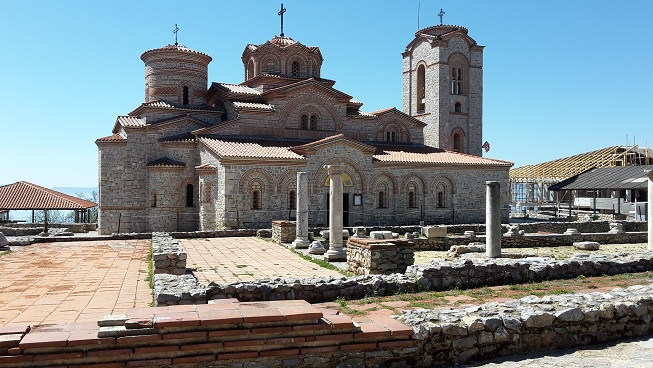
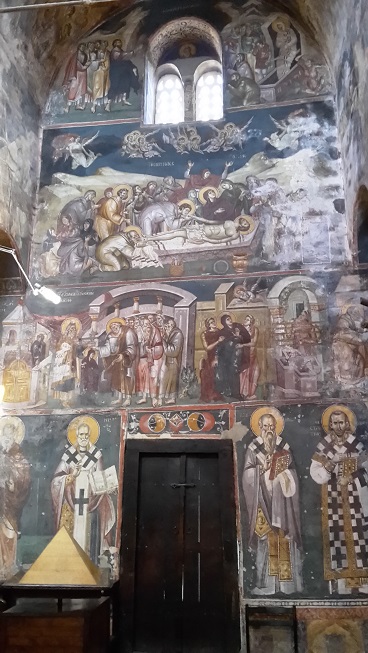

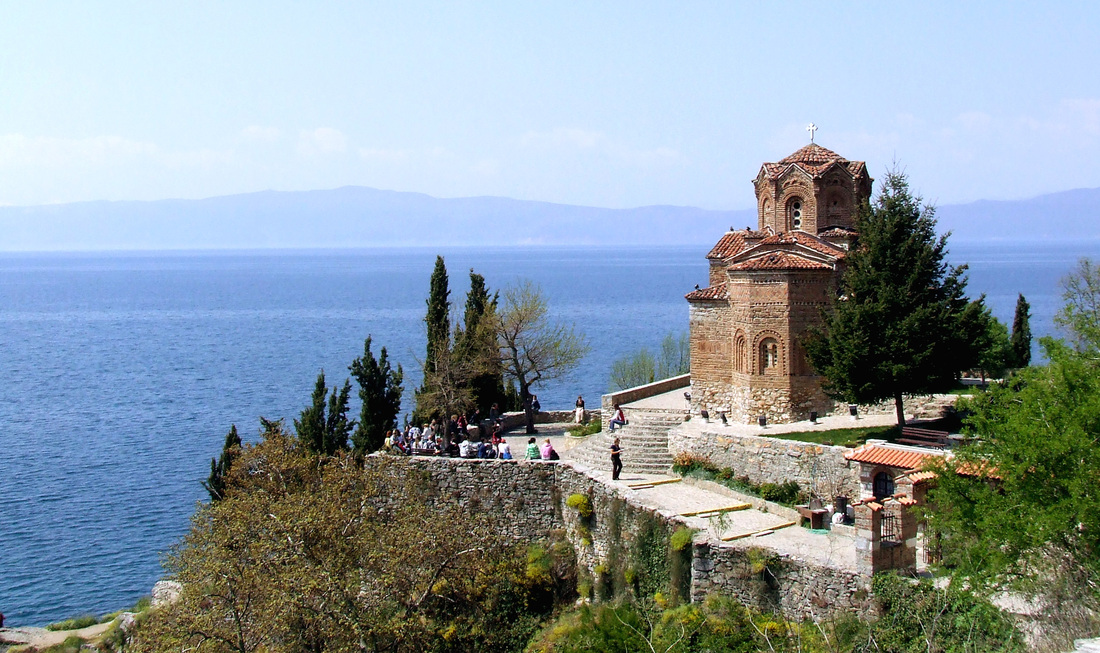
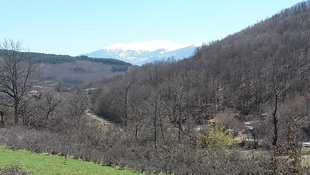
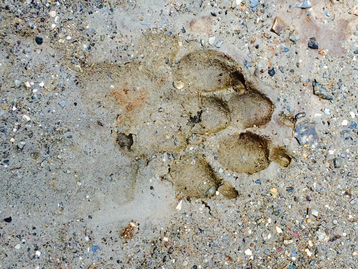
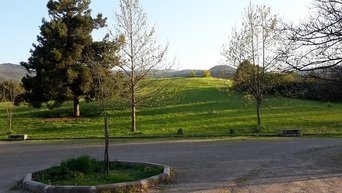
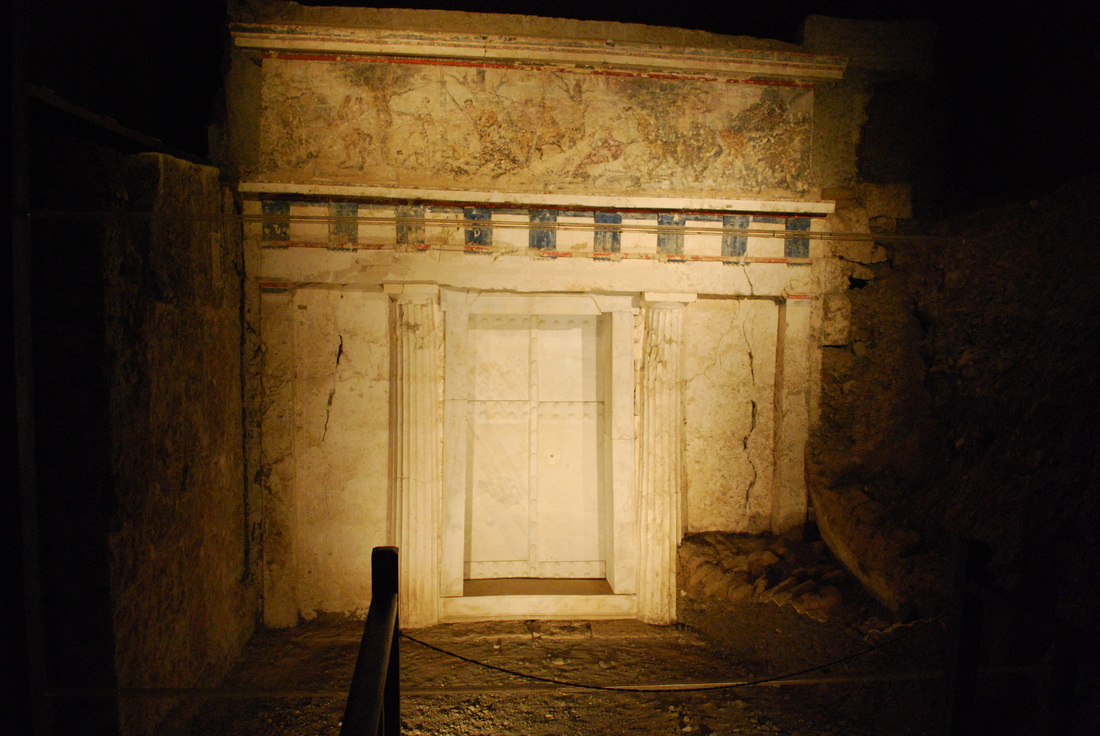
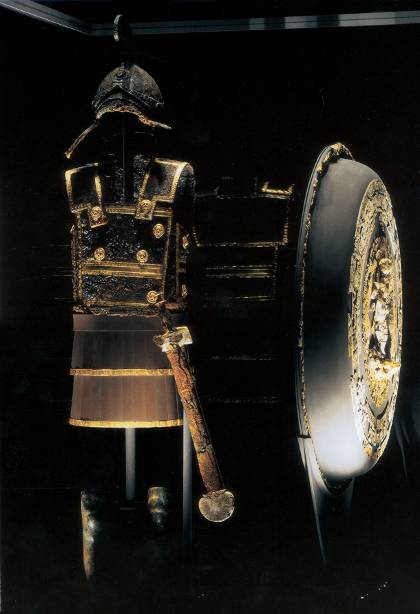
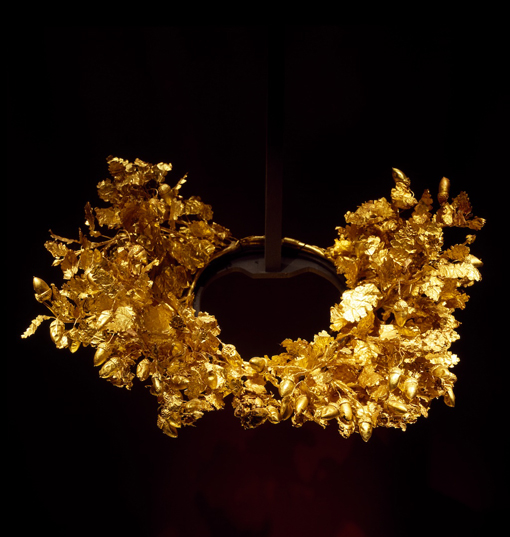
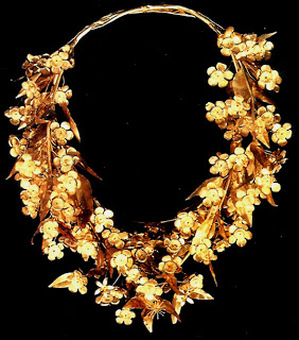
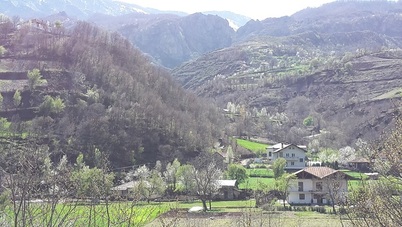
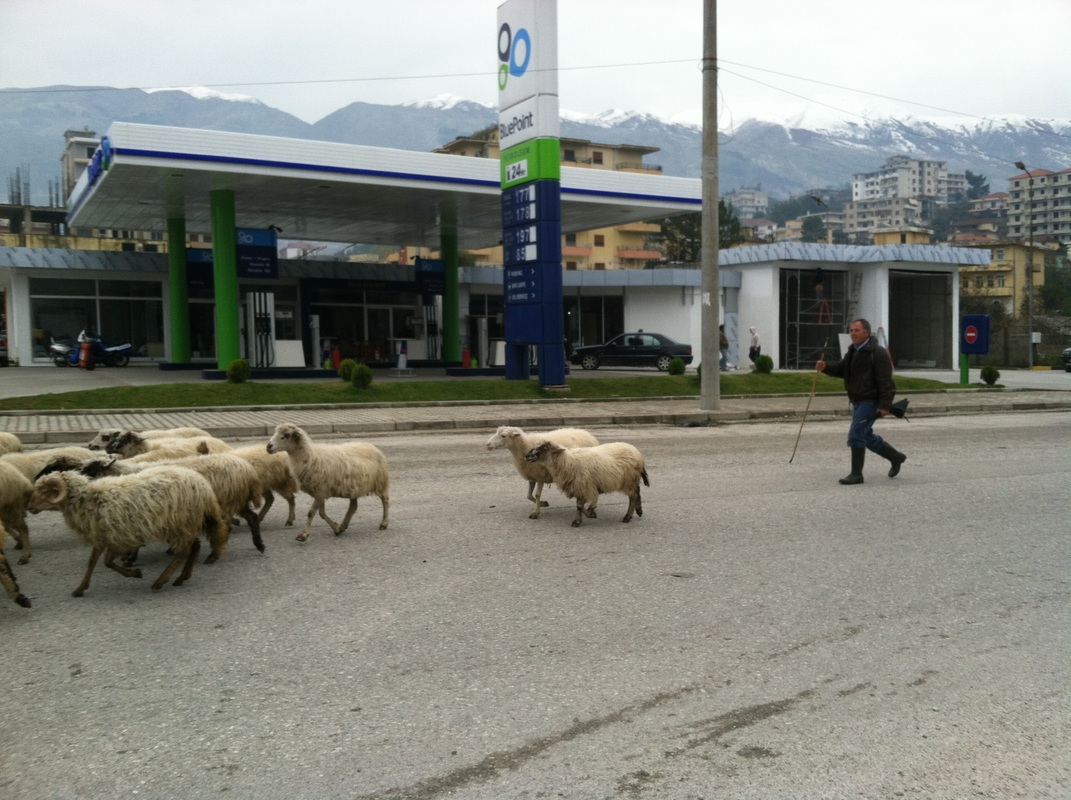
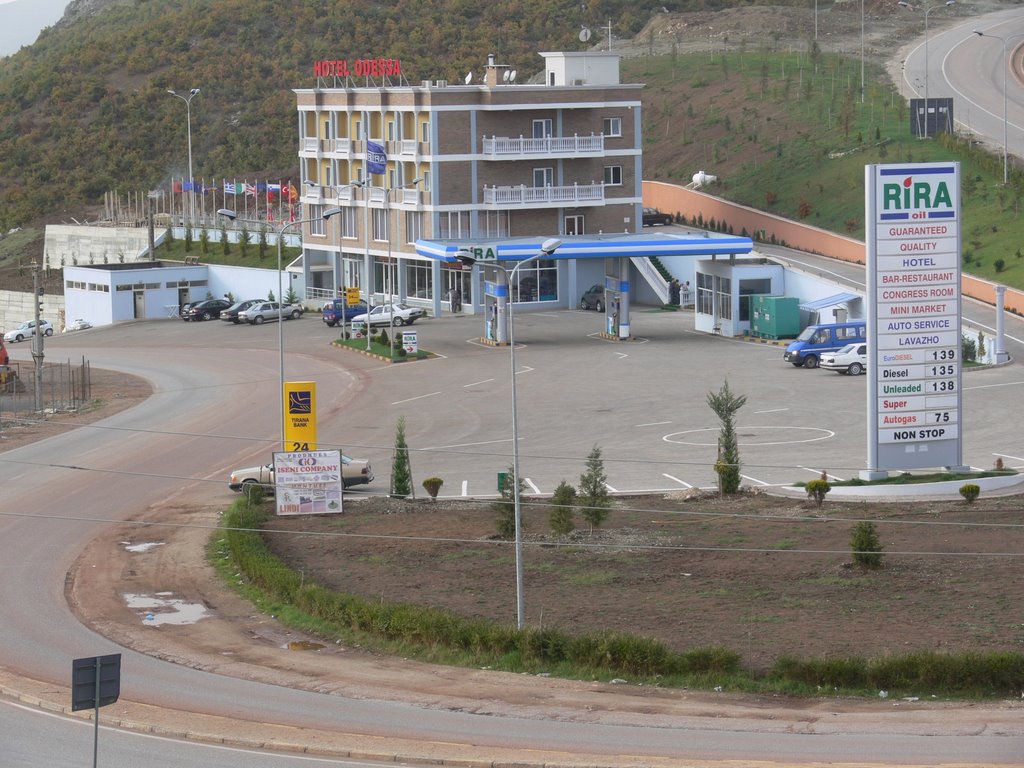
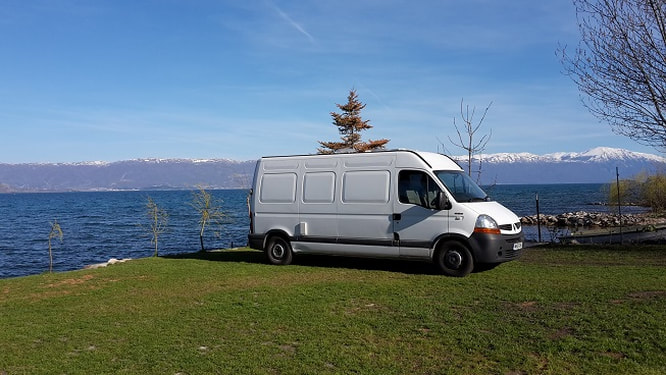
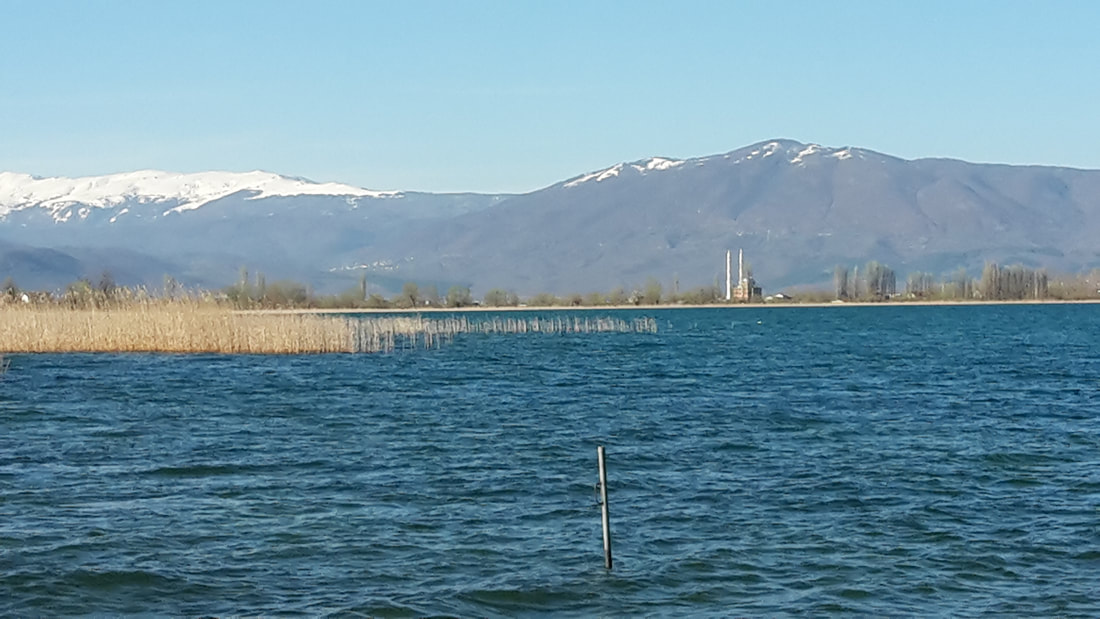
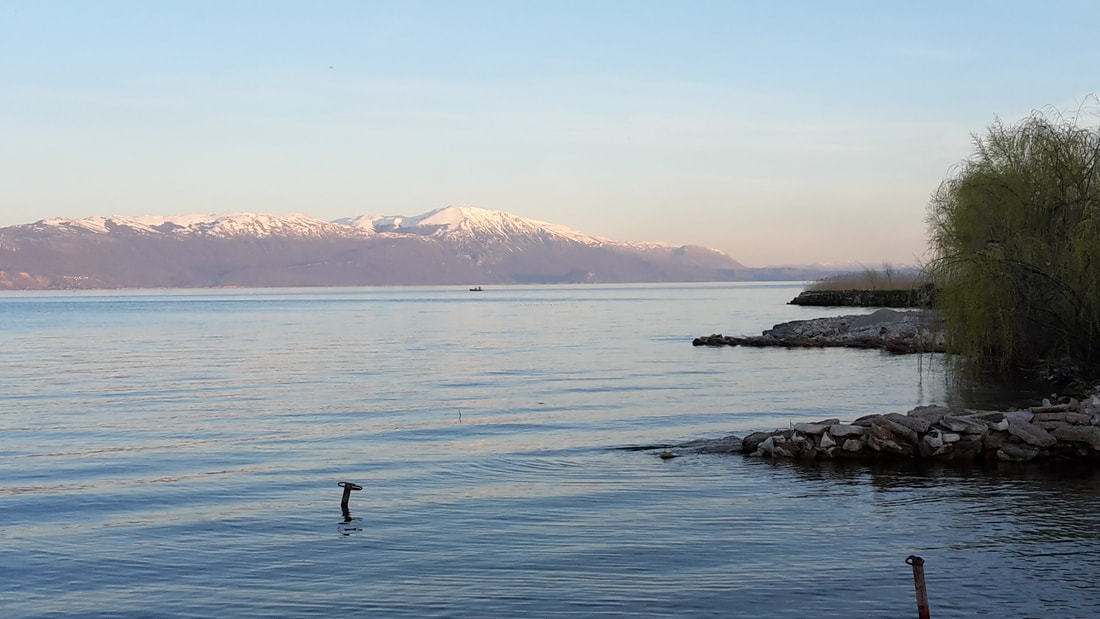
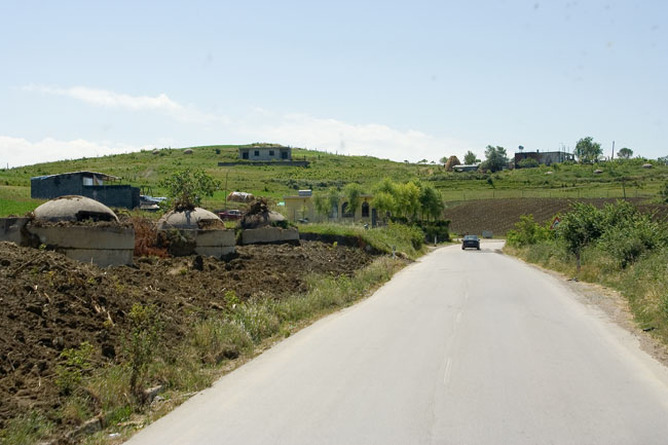
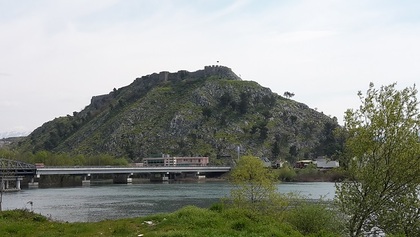
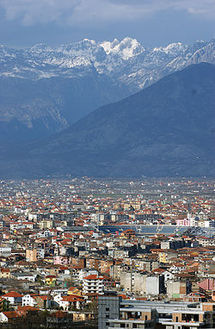
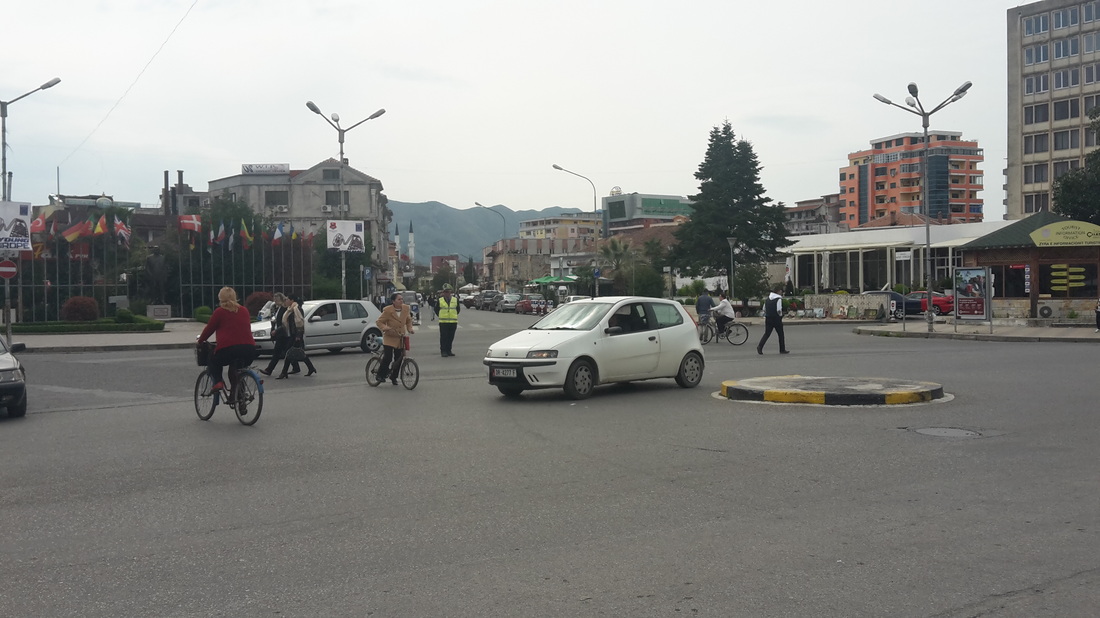
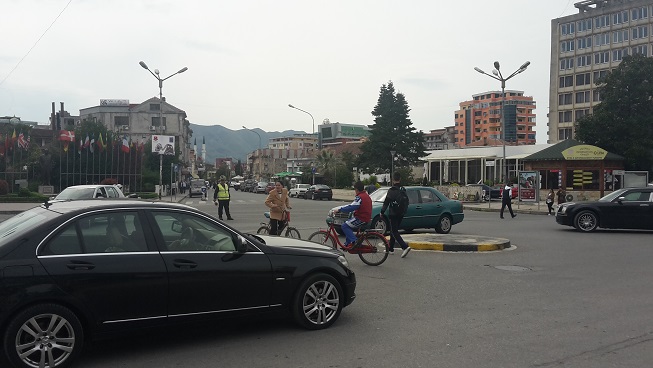
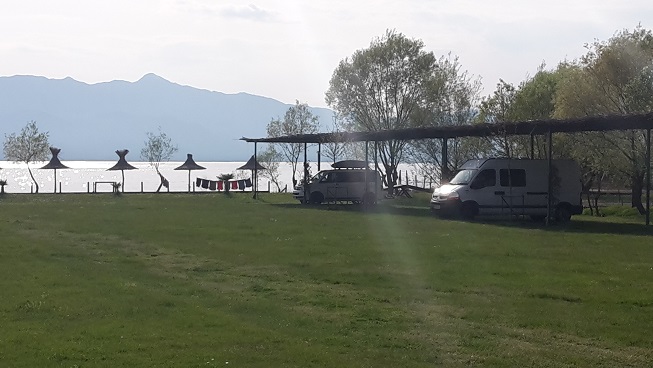
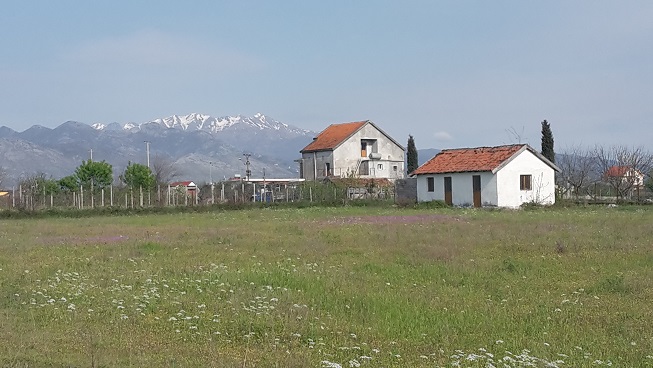
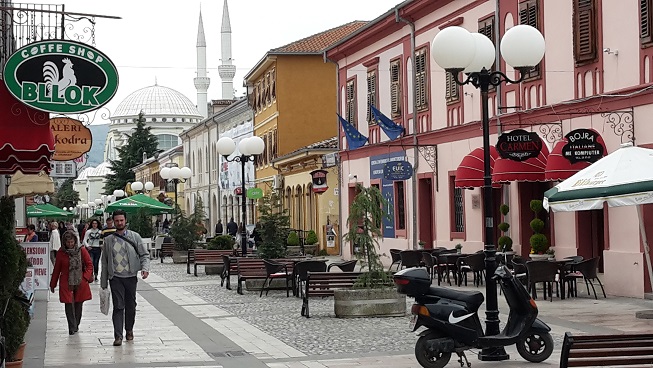
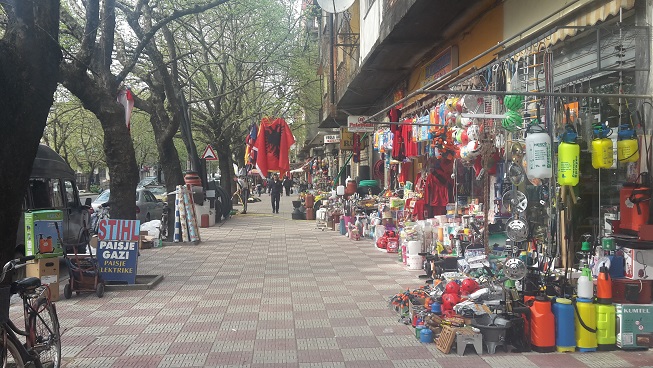
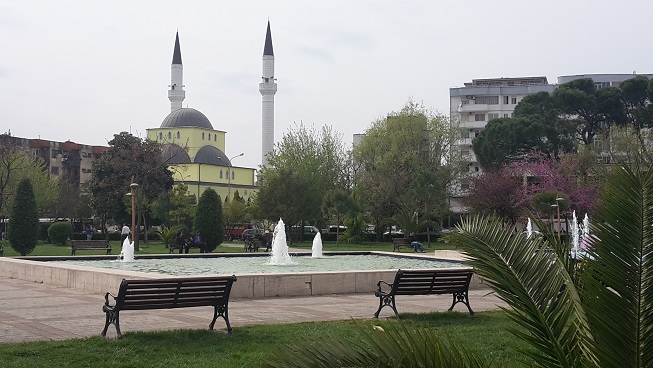

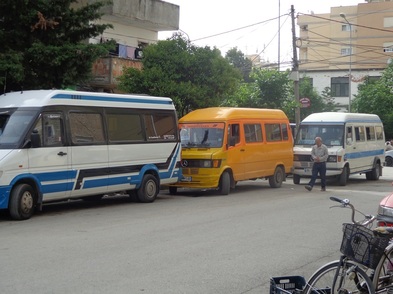
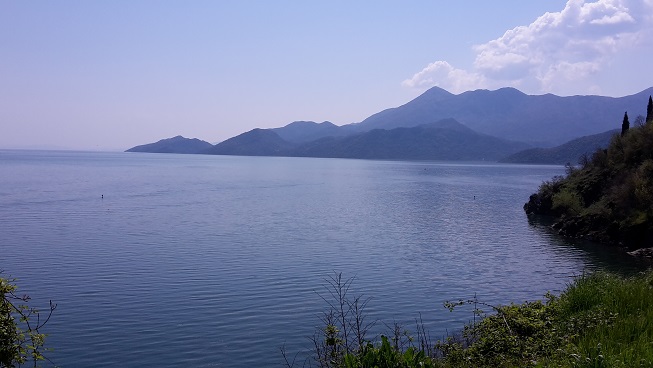


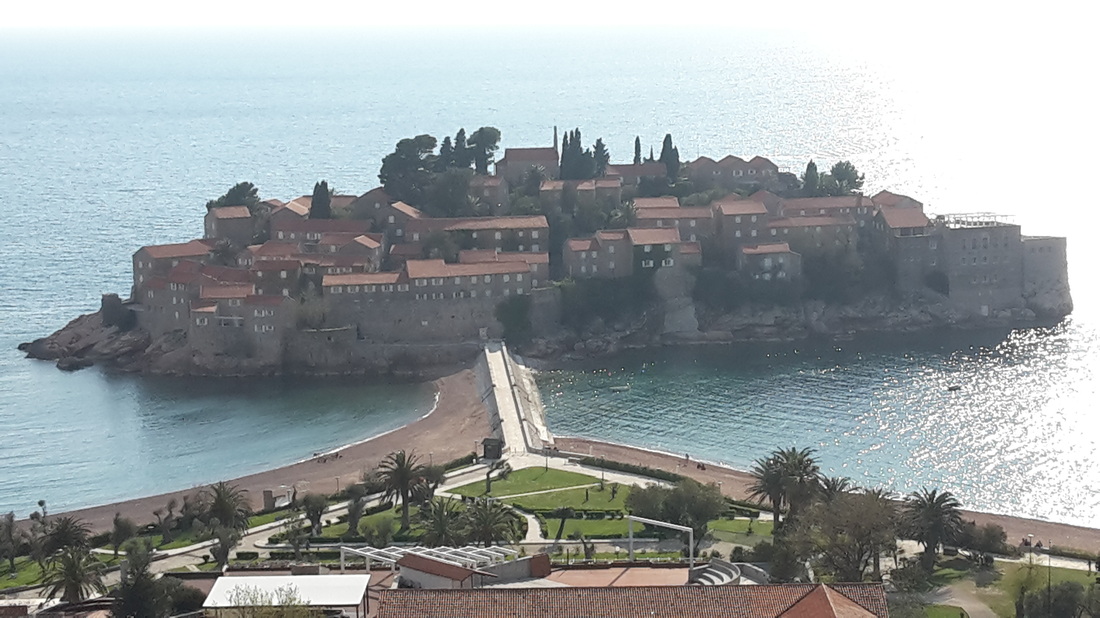
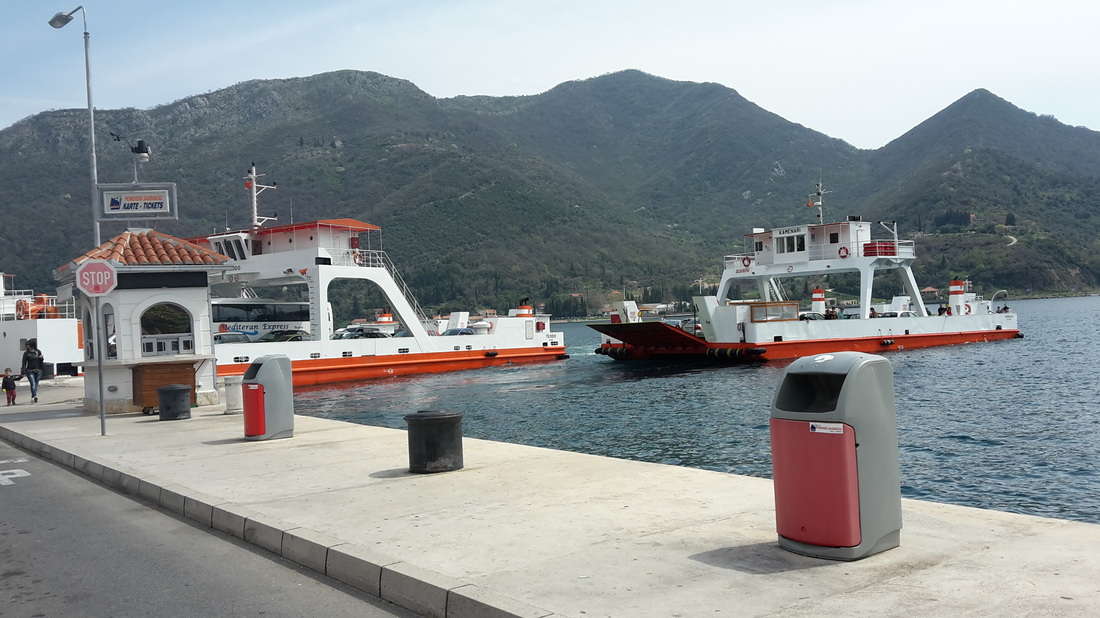
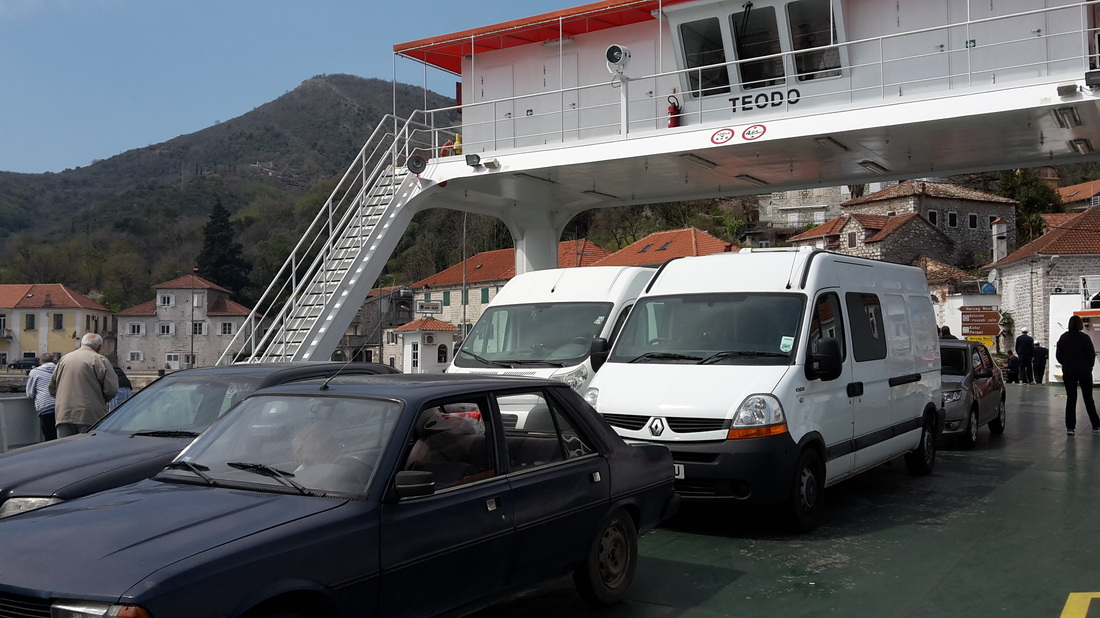
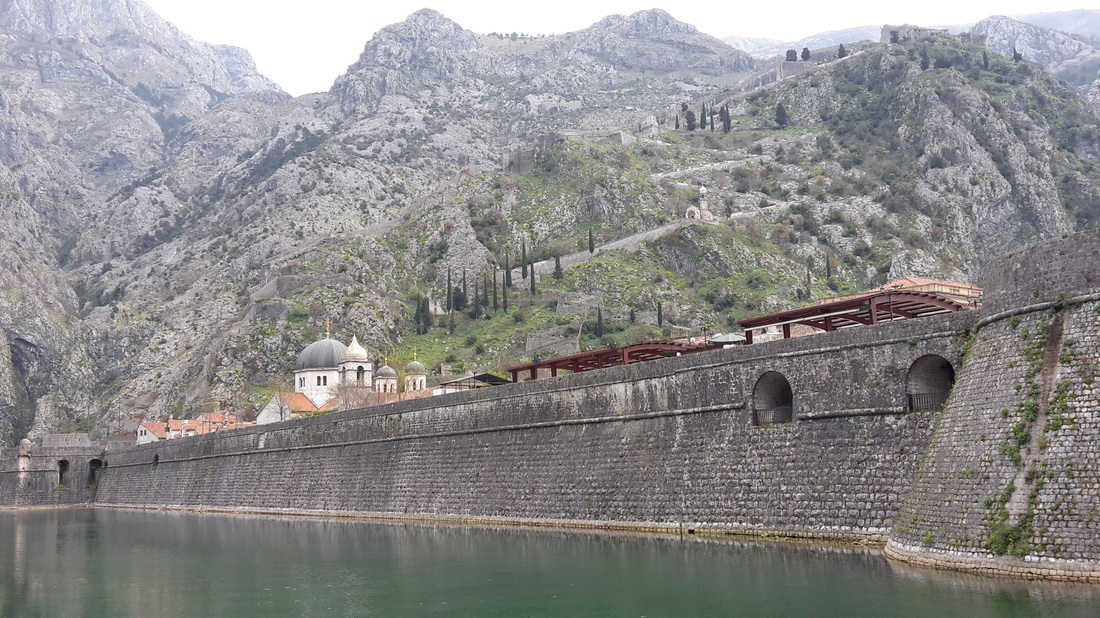
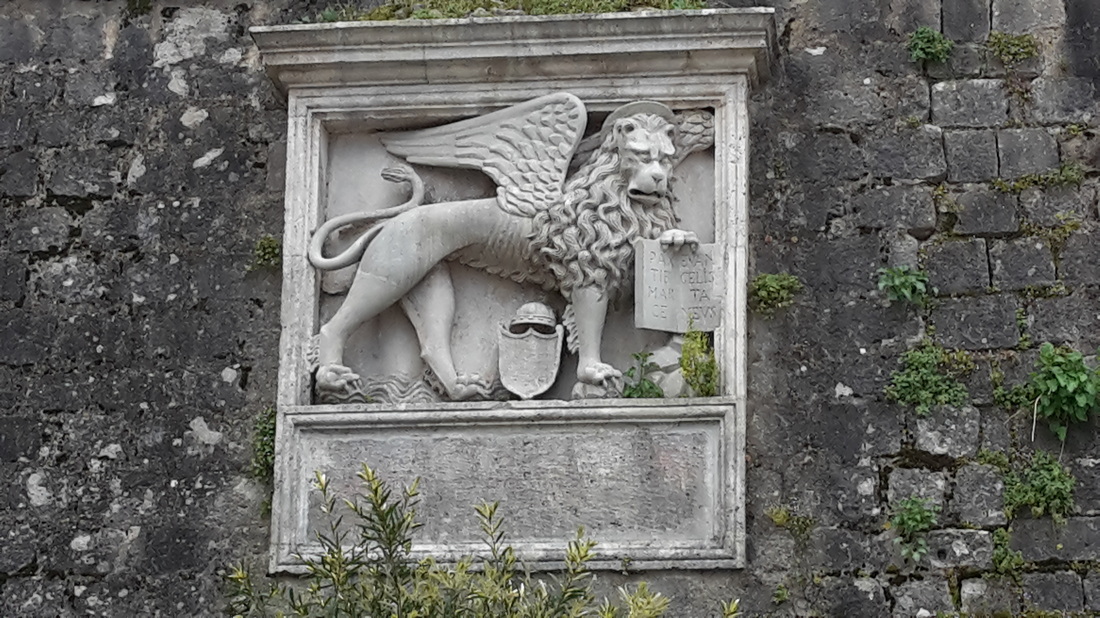
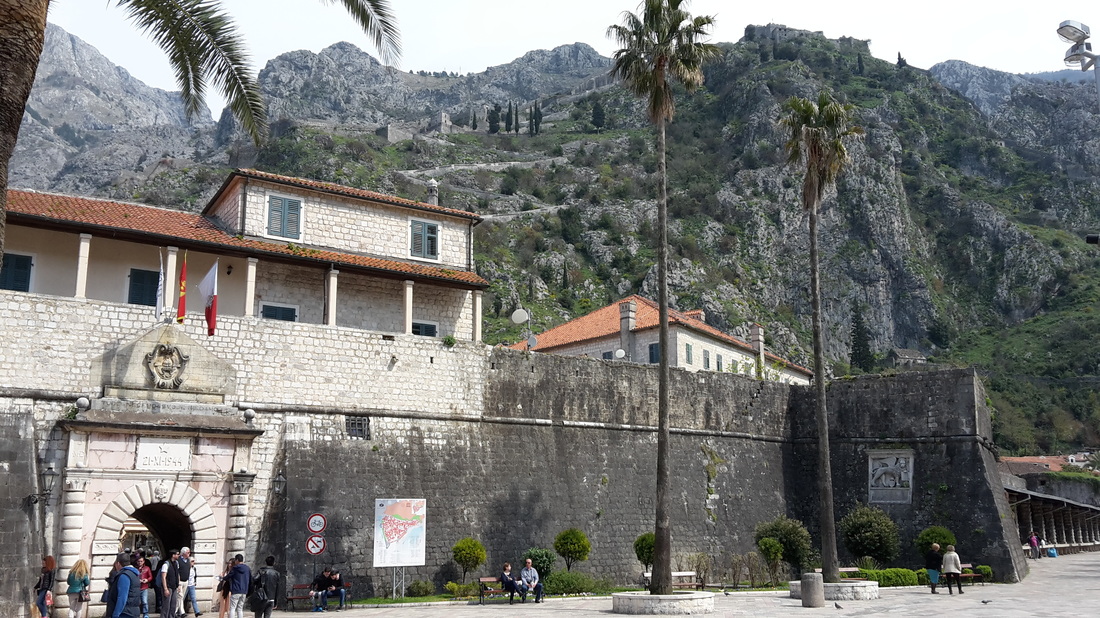
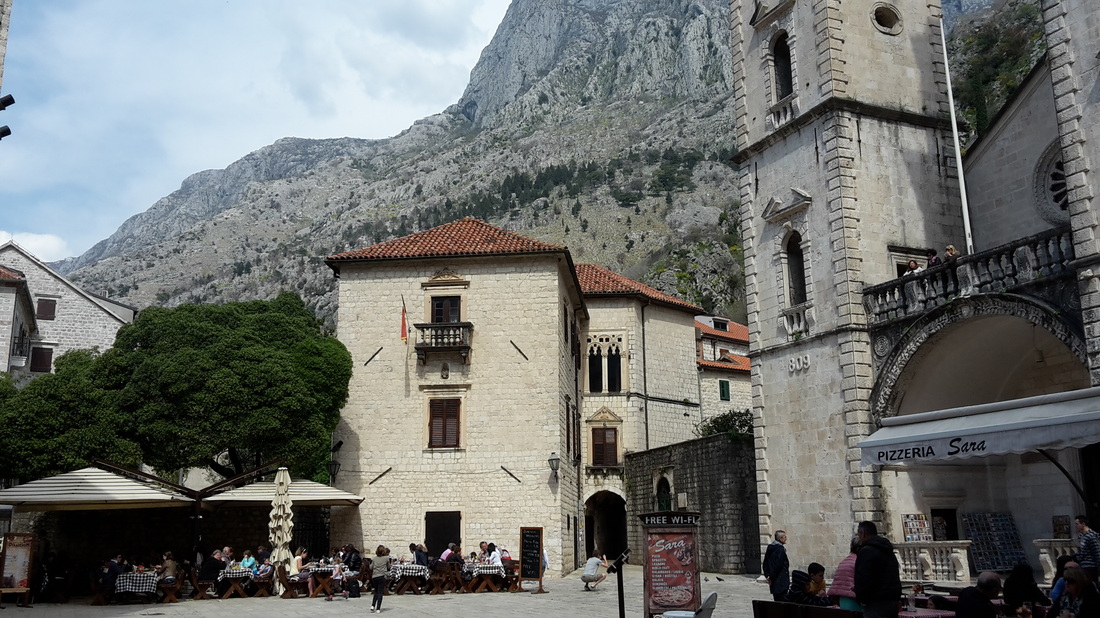
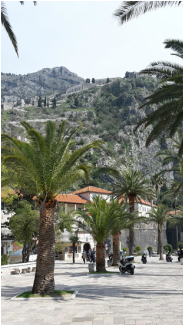
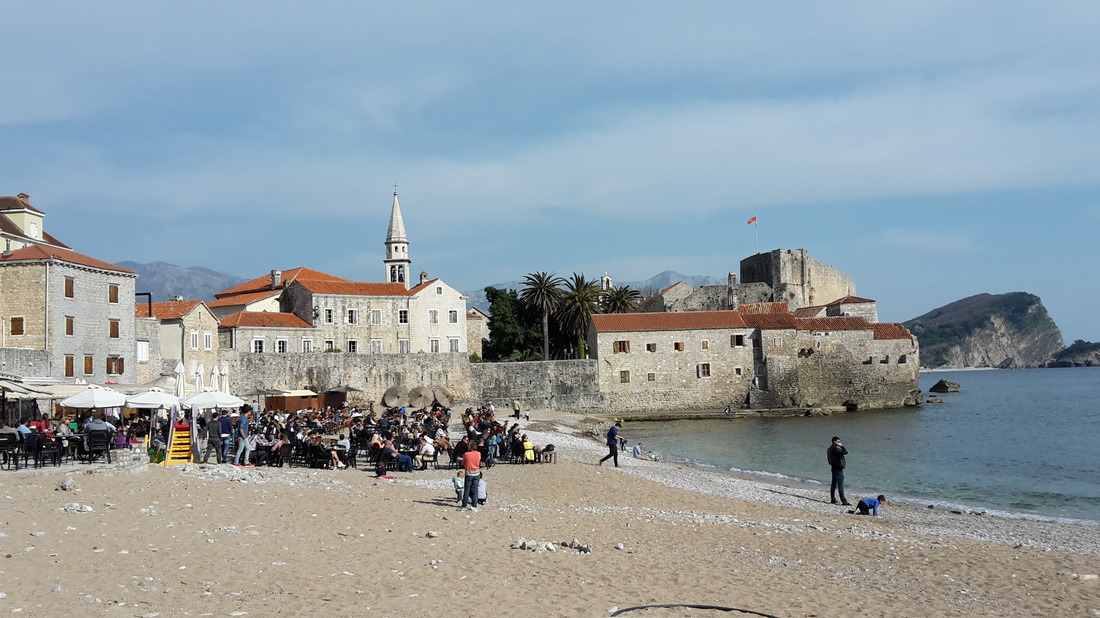
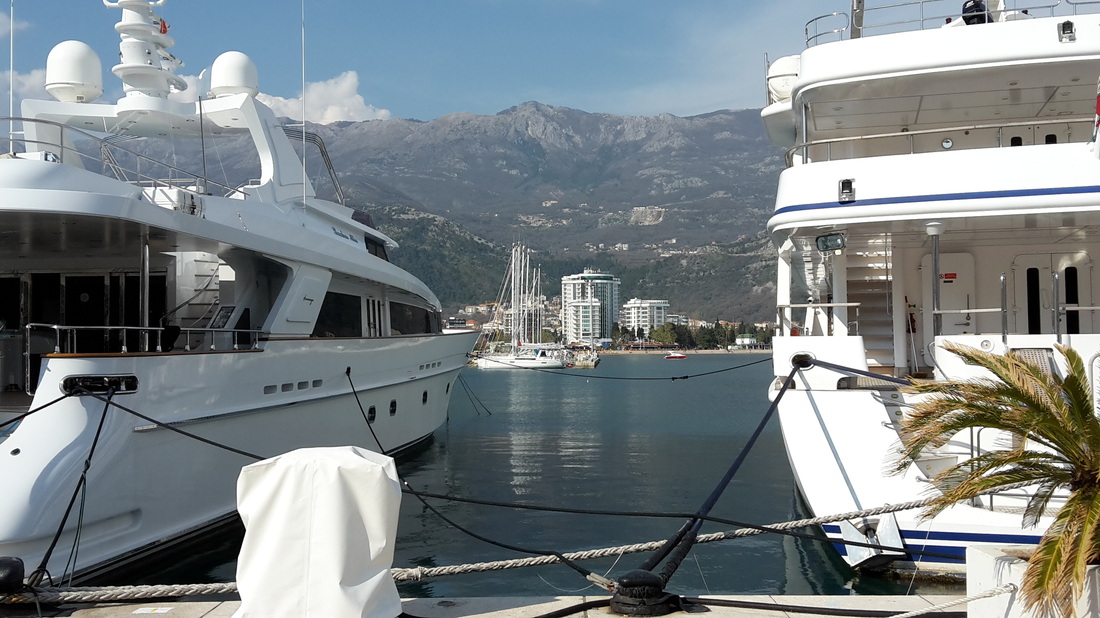
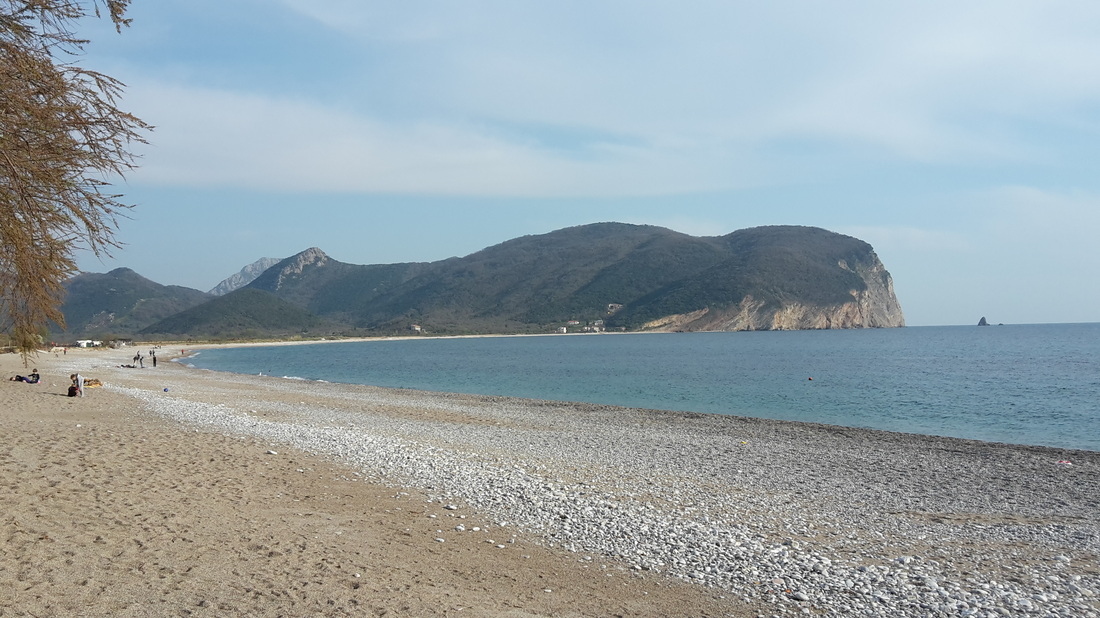

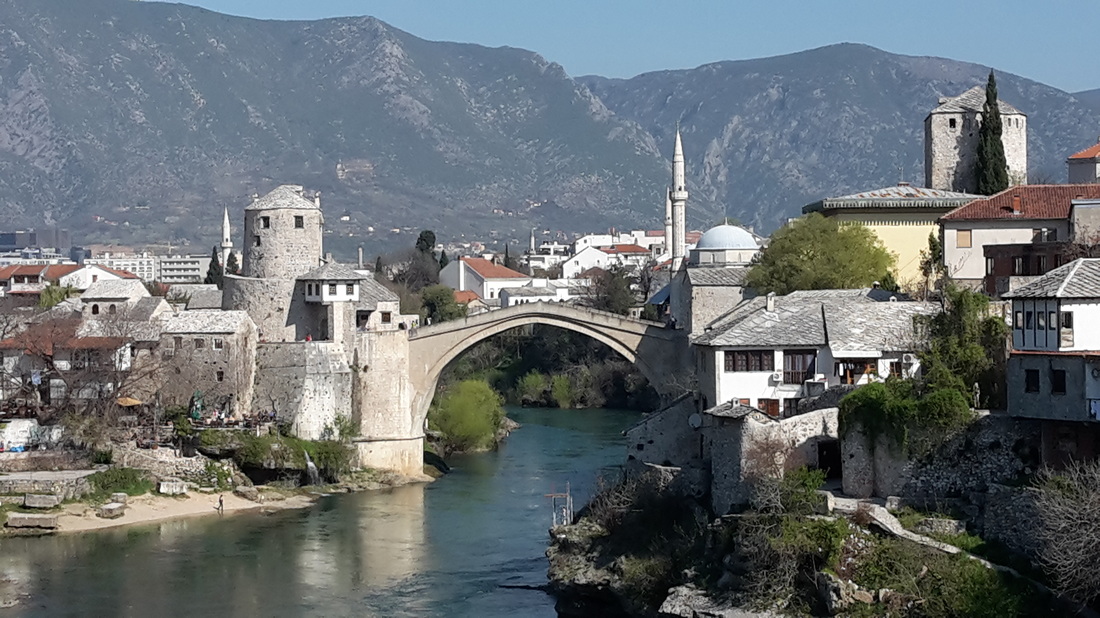
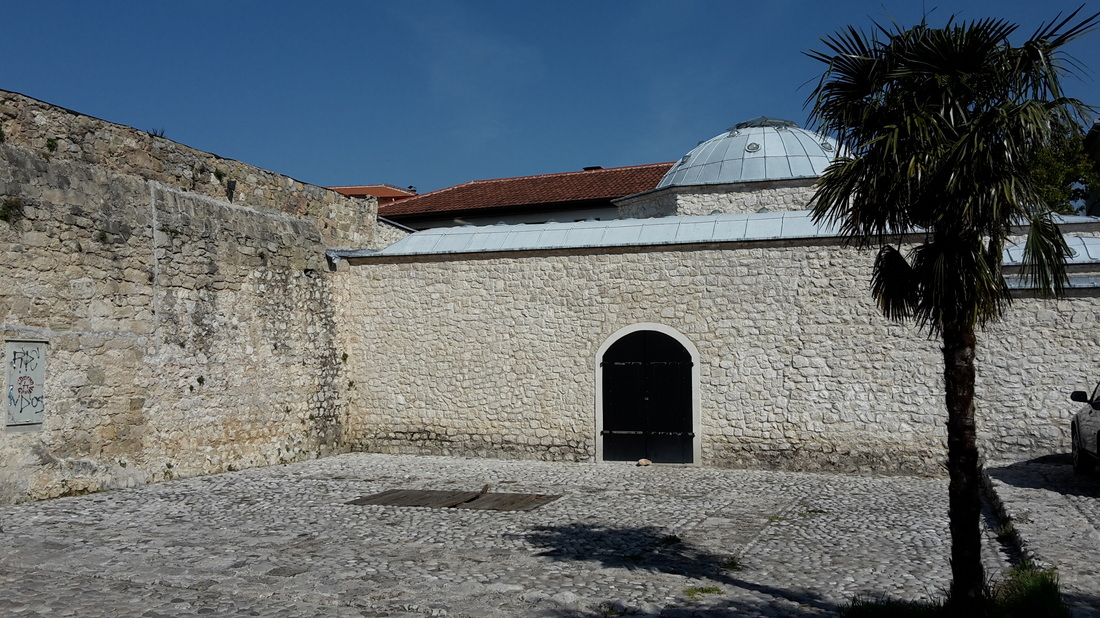
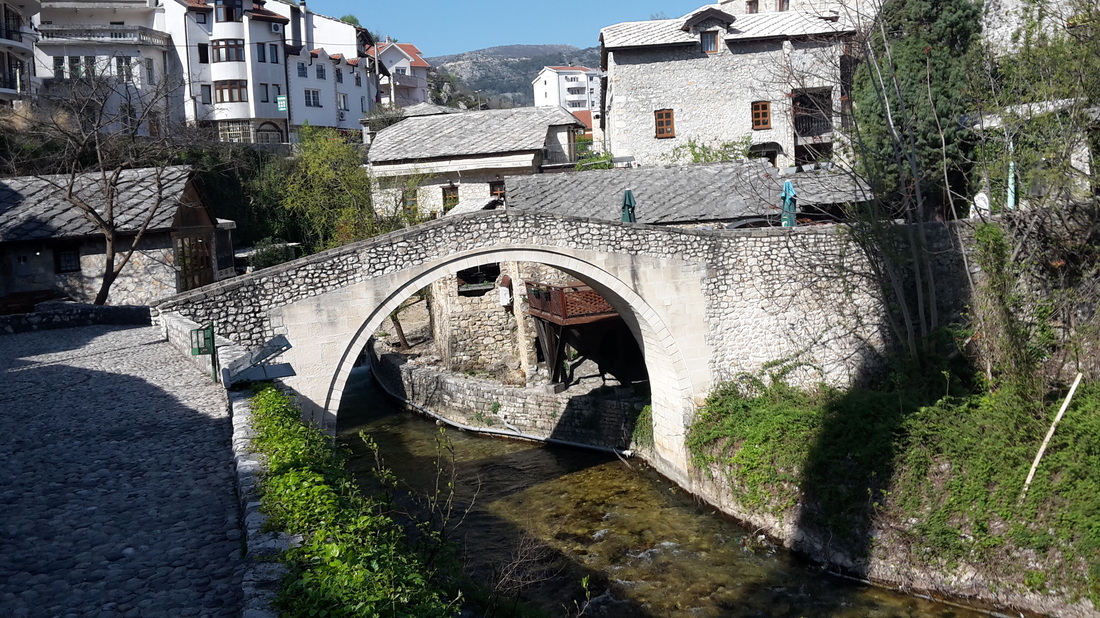
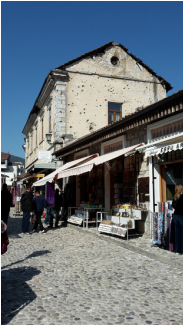
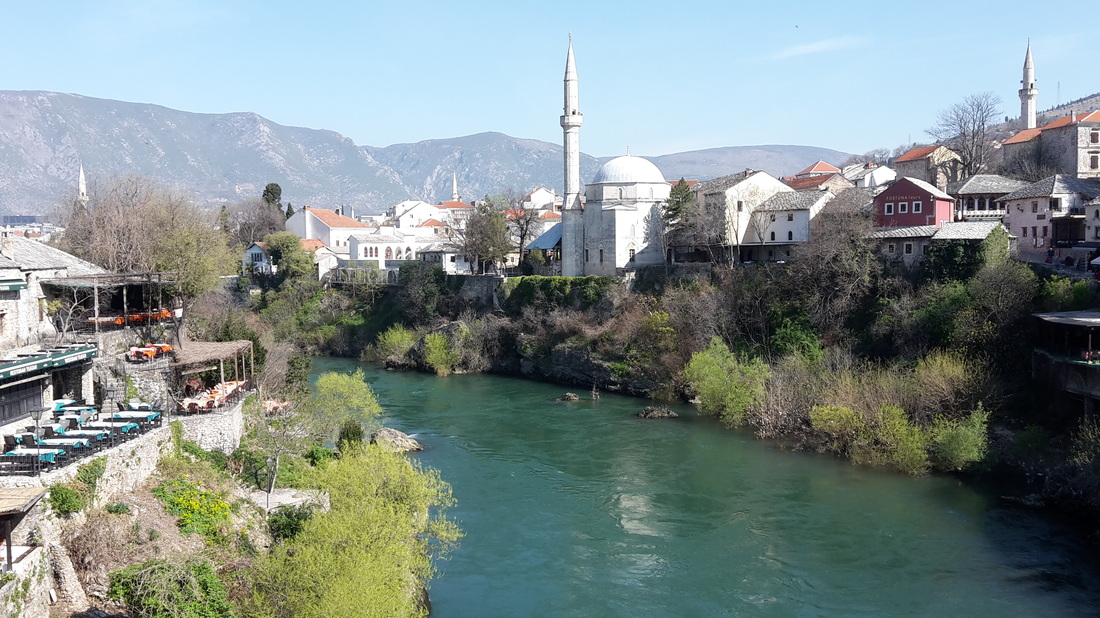
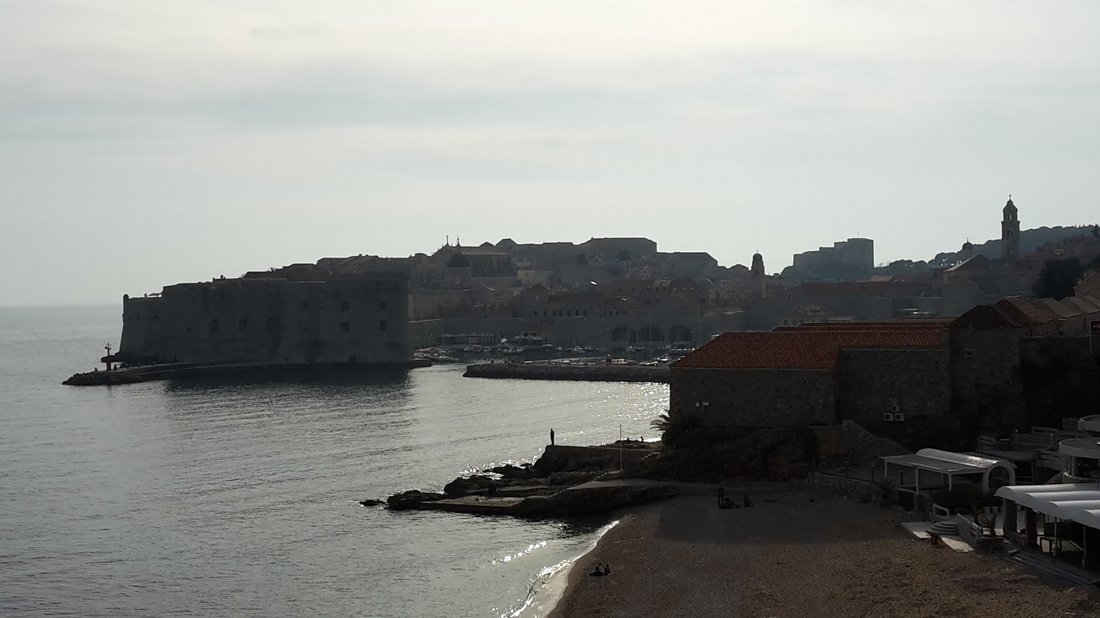
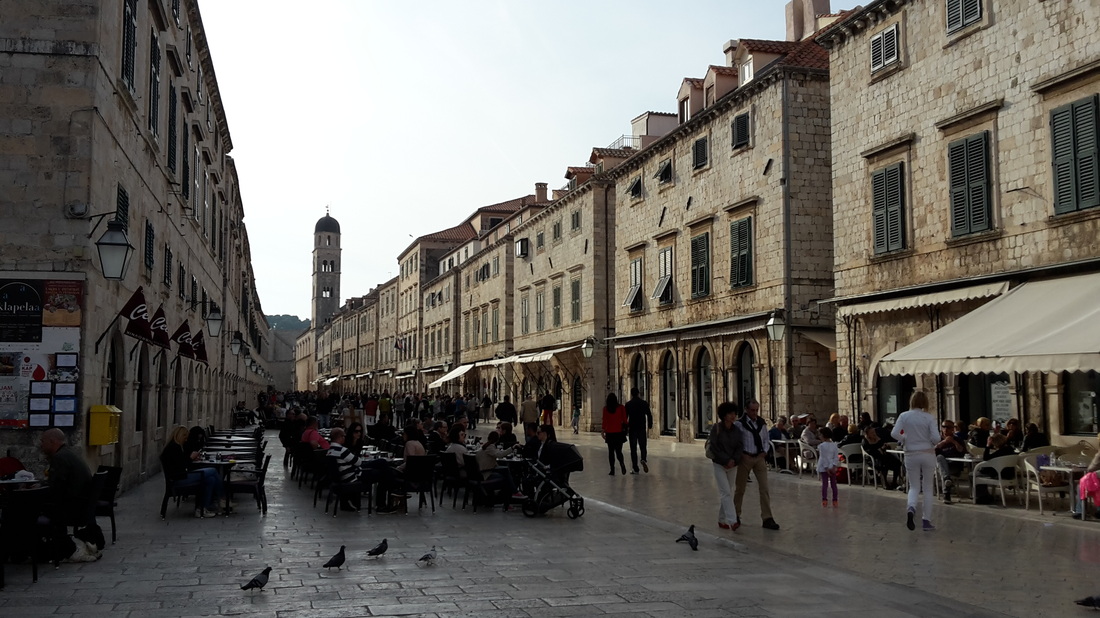
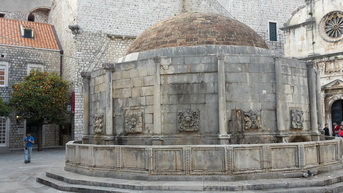
 RSS Feed
RSS Feed